Thanks to @EamonTewell for this list of critlib-related sessions at the American Library Association annual conference in New Orleans from June 22-25 2018. Feel free to add sessions you think would be valuable for critical library workers!
vendor relations
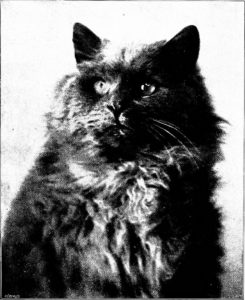
102nd chat, Monday March 19 2018: vendor relations
11 am Pacific / noon Mountain / 1 pm Central / 2 pm Eastern
moderated by @greenarchives1 @_cageorge @gngrlibrarian
Storify (pdf, html) by @violetbfox
Suggested resources:
- LexisNexis’s Role in ICE Surveillance and Librarian Ethics. Law Librarian Blog, December 11 2017.
- Law Librarian Status & Academic Freedom. The Ginger (Law) Librarian blog, December 06 2017.
Discussion questions:
- Q1. What obligations do vendors have to end-users of their products? What obligations do vendors have to library workers? #critlib
- Q2. What obligations do library workers have regarding ethical considerations in their relationships with vendors? (as information/product gatekeepers? as people who maximize access to information and rely on vendors to those ends?) #critlib
- Q3. What obligations do professional organizations have in maintaining ethical relations with vendors? #critlib
- Q4. How do we ensure library workers are able to engage in discussion about the ethical use of vendor products? #critlib
patron privacy
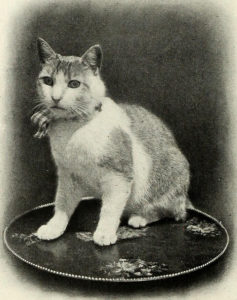
101st chat, Tuesday March 6 2018: patron privacy
6pm Pacific / 7pm Mountain / 8pm Central / 9pm Eastern
moderated by @zoefisher_
Storify (pdf, html) by @violetbfox
Previous critlib chats about privacy:
- privacy education in libraries (December 2015)
- critical perspectives on data surveillance and the privatization of higher ed (June 2015)
Suggested resources:
- “Not in the Clear: Libraries and Patron Privacy,” Barbara Fister, 12 Feb. 2015, https://www.insidehighered.com/blogs/library-babel-fish/not-clear-libraries-and-privacy.
- “Privacy: An Interpretation of the Library Bill of Rights.” Library Bill of Rights. American Library Association, http://www.ala.org/advocacy/intfreedom/librarybill/interpretations/privacy.
- “Privacy.” Advocacy, Legislation, and Issues. American Library Association, http://www.ala.org/advocacy/privacy.
- NISO Consensus Principles, Dec. 2015, https://groups.niso.org/apps/group_public/download.php/16064/NISO%20Privacy%20Principles.pdf.
Discussion questions:
- Q1. Does your library have a public statement about patron privacy? How was it created? How is it used? #critlib
- Q2. How is the concept of privacy culturally constructed? What stereotypes about privacy do we attach to certain cultures or groups of people? #critlib
- Q3. From your perspective, what risks to patron privacy are acceptable in order to provide library services? #critlib
- Q4. How are library workers complicit in eroding and compromising patron privacy? #critlib
- Q5. What are some steps taken by your library to uphold patron privacy? What projects/initiatives around patron privacy would you like to develop at your library? #critlib
100th chat celebration
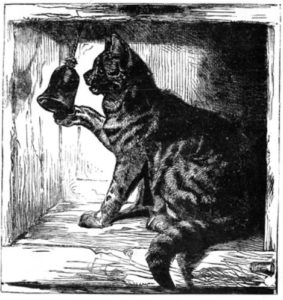
6pm Pacific / 7pm Mountain / 8pm Central / 9pm Eastern
moderated by @violetbfox & @thebookinator
Storify (pdf, html) by @violetbfox
100 Twitter chats is something to celebrate! Since the first #critlib chat in April 2014, a vibrant community of people has formed to share ideas—let’s celebrate that community by getting to know each other better. If you’re new to critlib, this chat will be a fun, no-pressure chance to participate!
Discussion questions:
- Q1. What podcast/song/album/video/TV show/movie/video game have you been digging lately? (Any audiovisual content is A-OK. No books!) #critlib
- Q2. What would you like to be an expert in? #critlib
- Q3. What do you give a damn about? #critlib
- Q4. Imagine you have a no-strings-attached sabbatical from your job, and no debt/bills to pay, for one year. What would you do? #critlib
- Q5. What do you want your legacy to be? #critlib
- Q6. What would you like to ask the #critlib community?
publishing, whiteness, and inequities
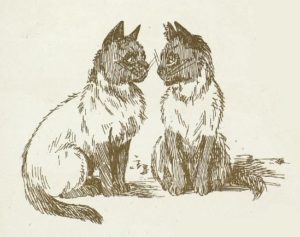
6pm Pacific / 7pm Mountain / 8pm Central / 9pm Eastern
moderated by @chelseaheinbach @CharissaAPowell & @CharlotteRock
Storify (pdf, html) by @violetbfox
The Librarian Parlor (LibParlor) is a blog for conversing, sharing expertise, and asking questions about the process of developing, pursuing, and publishing library research. This is the second of two #critlib chats moderated by members of the Librarian Parlor Editorial Team.
(A wrap-up blog post from the moderators, featuring highlights from the chat, is also available.)
Suggested resources:
- Charlotte Roh. Library publishing and diversity values: Changing scholarly publishing through policy and scholarly communication education (2016)
- Lee & Low Diversity Survey (2016)
- CCBC. Publishing Statistics on Children’s Books about People of Color and First/Native Nations and by People of Color and First/Native Nations Authors and Illustrators
- Inside Higher Ed. Analyzing Black Lives Matter Without Black People Involved (2017)
Discussion questions:
- Q1. What are some historical and current inequities in publishing? #critlib
- Q2. How have you seen these inequities play out in your work in libraries? #critlib
- Q3. How can library workers strive to make publishing more equitable in our role as purchasers, authors, and influencers? #critlib
- Q4. How can library workers strive to make publishing more equitable as researchers themselves? #critlib
- Q5. How will you actively work against these inequities using what you learned in this chat today? #critlib
Wikipedia, open access, and social justice
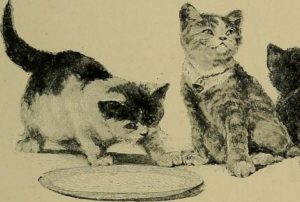
98th chat, Monday January 22 2018: Wikipedia, open access, and social justice
11am Pacific / noon Mountain / 1pm Central / 2pm Eastern
moderated by @voxpopulare
Storify (pdf, html) by @violetbfox
This chat will happen during the #1Lib1Ref campaign, an effort to encourage all librarians to get involved in editing Wikipedia.
suggested resources:
- Allum, C. (2016, Feb 29). Women leading movements to champion equality on Wikipedia. Women in the World, in Association with the New York Times.
- Rochon, B., Béland, J., & Casemajor, N. (2017, May 15). What do you call a homepage? Incorporating indigenous knowledge into Wikipedia. [Blog post]. Wikimedia Blog.
- Weaver, M. (2016, Oct 20). Librarians work to make Wikipedia more inclusive with ‘Wiki Loves Pride’ event. The Bucknellian.
discussion questions:
- Q1. How have you engaged with Wikipedia in the past week, month, or year (personally or professionally)? Is there anything that keeps you from engaging more than you do? #critlib
- Q2. In general, how does Wikipedia supplement or enhance your work or that of your students, faculty/staff colleagues, or general library patrons? #critlib
- Q3. Based on the readings about Wikipedia as activism and indigenous Wikipedia, what do you see as the potential for Wikipedia as a site for activism or eliminating information gaps about/for marginalized populations? #critlib
- Q4. Based on your experience and the readings, how do you engage with Wikipedia an information resource, a community, or both? #critlib
- Q5. How can we use Wikipedia more effectively as a tool to support global engagement among scholars, activists, information professionals, and people in need of open information resources? #critlib
doing critlib research
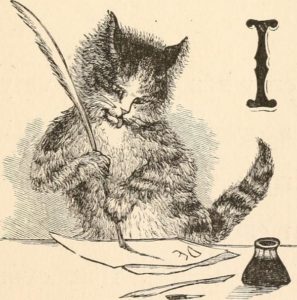
97th chat, Tuesday January 9 2018: doing critlib research: a #libparlor #critlib mashup
6pm Pacific / 7pm Mountain / 8pm Central / 9pm Eastern
moderated by @hailthefargoats and @libraringkat
The Librarian Parlor (LibParlor) is a blog for conversing, sharing expertise, and asking questions about the process of developing, pursuing, and publishing library research. In this first of two #critlib chats, the Librarian Parlor Editorial Team would like to explore the process and theory behind conducting research with a critical librarianship lens. We hope this chat provides insight on best practices for starting and doing this research, as well as provide perspectives and theories for further exploration. The LibParlor Editorial Team believes our mission of creating community and conversation to demystify research aligns with the mission of #critlib to engage in discussion on critical perspectives.
(A wrap-up blog post from the moderators, featuring some of the participants’ suggestions for resources, is also available.)
Suggested resources:
- Tewell, E. (2015). A Decade of Critical Information Literacy: A Review of the Literature. Communications In Information Literacy, 9(1).
- Garcia, K. (2015). “Keeping Up With… Critical Librarianship,” American Library Association.
- McElroy, K. (2017). But How Do We Do Critical Librarianship? OLA Quarterly, 23(2), 6-8.
Discussion questions:
- Q1. How did you get involved with critlib and what kind of #critlib-related research are you working on right now or hope to work on soon?
- Q2. How does #critlib pedagogy influence your research and how do you incorporate critical approach in your research?
- Q3. What’s the most influential #critlib theory/book/article you’ve read and how has it impacted your research and day to day work as a librarian?
- Q4. Have you received any pushback from colleagues about doing #critlib-related research? How have you handled these conversations? How would you hope to handle them if this happened to you?
- Q5. What do you hope to achieve with #critlib research?
2017 year end chat
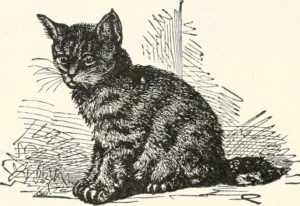
96th chat, Monday December 18 2017: year end chat
11am Pacific / noon Mountain / 1pm Central / 2pm Eastern
moderated by @catladylib and @kellymce
About a year ago, #critlib chats began to focus on what it meant to be an information professional in a hostile, fascist, and overtly racist political environment; and it’s become a tradition to host an annual reflective chat for the #critlib community to reconnect with why they do the work that they do. We recognize that 2017 has been a difficult year politically, and need for information works to organize and resist has never been greater. This week’s chat invites the #critlib community to reflect on the year, share what their struggles have been, what they’re grateful for, and how we can organize the collective for the upcoming year.
Discussion questions:
- Q1. What has critical librarianship looked like for you this last year? #critlib
- Q2. What is (or isn’t) welcome back in 2018? #critlib
- Q3. What are you grateful for at the end of this year? What are you grieving or angry about? #critlib
- Q4. What did you read this year that resonated? #critlib
- Q5. What will you focus on next year? #critlib
user personas for digital collections
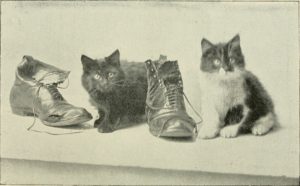
95th chat, Tuesday December 5 2017: user personas for digital collections
6pm Pacific / 7pm Mountain / 8pm Central / 9pm Eastern
moderated by @kate_thornhill and @hskettler
Storify (pdf, html) by @CLIRDLF
Please use both hashtags: #critlib #dlfaig in this chat!
The Digital Library Federation‘s Assessment Interest Group‘s User Experience and Cultural Assessment Working Group’s Twitter chat will focus on the ethical implications of designing user personas as they apply to the creation and universal access of digital collection and repository technologies. These effects are often inscribed by white-straight-cisgendered librarians’ and technologists’ perspectives and values, and influence digital collection building and repository system development and maintenance. The intent of this #critlib #dlfaig chat will be to underscore and outline the snowball effect of early stage human-centered design processes influenced and perpetuated by systemic inequalities.
Suggested resources:
- Personas: Why and How You Should Use Them https://www.interaction-design.org/literature/article/personas-why-and-how-you-should-use-them
- Designing for Culture: Creating the Perfect UX Persona – https://www.uxpin.com/studio/blog/designing-for-culture-creating-the-perfect-ux-persona/
- Digital Libraries and User Needs: Negotiating the Future by Anita Coleman and Tamara Sumner (2004). Journal of Digital Information. Vol. 5, Issue 3 https://journals.tdl.org/jodi/index.php/jodi/article/view/119/123
- The Participatory Museum by Nina Simon. Chapter 10: Evaluating Participatory Projects http://www.participatorymuseum.org/chapter10/
- A Short Guide to Community Based Participatory Action Research by Janice C. Burns, M.A.; Deanna Y. Cooke, Ph.D.; Christine Schweidler, M.P.H. from the Advancement Project (www.advancementprojectca.org)
Discussion questions:
- Q1. What are pros and cons of using user personas for digital libraries and collections? #critlib #dlfaig
- Q2. How can we most ethically and responsibly design user personas for digital collections? How should communities be included and involved? #critlib #dlfaig
- Q3. When conducting user research for user personas, what crucial aspects should digital library practitioners should be aware of to offset bias in the digital library design process? #critlib #dlfaig
- Q4. When designing systems to support digital collections, what are core system functions to include in user persona behavior goals? #critlib #dlfaig
- Q5. How do digital collection selection practices and workflows influence and define user personas? #critlib #dlfaig
- Q6. The DLF UX and Cultural Assessment working groups are in the beginning stages of developing a user personas rubric. What criteria should be included in it? What should be measured? #critlib #dlfaig
Context/additional information:
- DLF AIG User Experience (UX) Working Group https://wiki.diglib.org/Assessment:User/UX
- DLF AIG Cultural Assessment Interest Group https://wiki.diglib.org/Assessment:Cultural_Assessment
- DLF Assessment Interest Group https://www.diglib.org/groups/assessment/
critical librarianship and comics
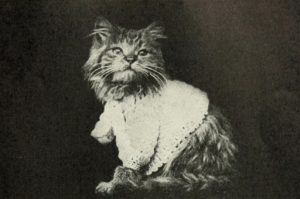
94th chat, Tuesday November 28 2017: critical librarianship and comics
6pm Pacific / 7pm Mountain / 8pm Central / 9pm Eastern
moderated by @ohelmiller and @stephliana
Storify (pdf, html) by @NoetheMatt
Glossary:
- graphic novel vs. comic: comic is the medium, graphic novel is a form more socially accepted.
- minicomics: usually refers to handmade or micropress (creator-published/self-
published or very small press) comics. - webcomics: comics created for and published on websites. May range from daily strips to full-length graphic novels. (Distinguished from digital comics, which are usually traditionally-published comics meant to live as print works but made available on digital platforms.)
- sequential art: artwork that tells a story through sequential narrative (including storyboards, animation, and illustrated novels). Comics are sequential art, but not all sequential art is comics.
- see also: BookRiot’s Glossary of Comic Terms
Suggested resources:
- Nyberg, Amy Kiste (2010). How Librarians Learned to Love the Graphic Novel. Chapter in Graphic novels and comics in libraries and archives: essays on readers, research, history and cataloging, edited by Robert G. Weiner. McFarland & Co.
- Settoducato, Liz (2016). My Experience: Reading comics is making me a better librarian. University of Michigan Library “Student Stories” blog.
- Q1. How have you used (or seen comics used) in library practice? How would you like to see comics used in libraries? #critlib
- Q2. What programming ideas or experiences do you have that examine comics through a critical lens? That use comics AS a critical lens? #critlib
- Q3. How do cataloging and/or shelving practices in your library affect the perception or discovery of comics? #critlib
- Q4. Given institutional norms, how can we keep comic collections weird? #critlib
- Q5. Comic suggestions for the new-to-comics-critical-librarian? #critlib